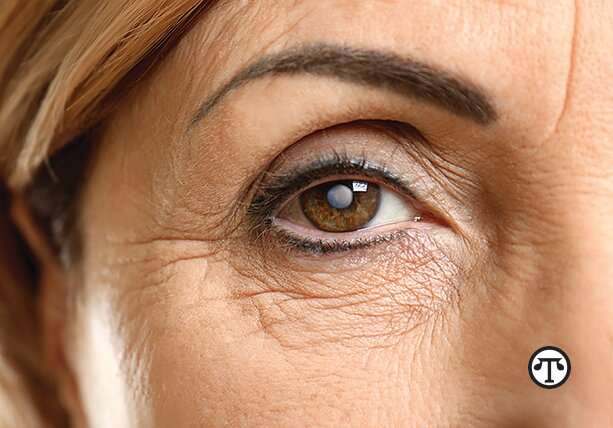FOR YOUR HEALTH: What You Need to Know About Cataracts

Keep an eye on your sight. Blurry vision, faded colors and double images can all be symptoms of cataracts—which can be cured.
(NAPSI)—By age 80, most people either have cataracts or have had cataract surgery. That’s because most cataracts are the result of natural aging. You may not notice that you have a cataract at first. But over time, they can make your vision blurry or hazy, colors fade, you can’t see well at night, or you may see double images. The good news is that cataract surgery can restore your sight. With a high success rate of more than 90 percent, cataract surgery enables people to see better after their cataract is removed.
Here are the top six things ophthalmologists – physicians who specialize in medical and surgical eye care – want you to know about cataracts:
1. Cataracts can be removed with surgery. Surgery is the only way to cure cataracts. Early on, you may be able to cope with reduced vision from cataracts by using brighter lights, wearing anti-glare sunglasses, or using magnifying lenses for reading. But if cataracts start getting in the way of everyday activities such as reading, driving, or watching TV, an ophthalmologist will need to remove the clouded natural lens and replace it with an artificial lens, also called an intraocular lens (or IOL), to correct blurry vision.
2. You can slow development of early cataracts. You can take steps to protect your eyes from cataracts. Using 100 percent UV blocking sunglasses, quitting smoking, maintaining control over high blood sugar, and eating a healthy diet can help prevent cataracts.
3. People with diabetes are more likely to get cataracts. Natural aging is the most common cause of cataracts, but some people are at higher risk for cataracts than others. People who have diabetes with high blood sugar levels can get cataracts quicker and at a younger age than those with normal blood sugar levels. Improving glucose levels may help delay cataracts.
4. Eye color affects your risk of developing cataracts. Studies show that people with dark brown eyes have a higher risk of developing cataracts than people with lighter eyes. However, UV light is a known contributor to cataract development no matter what color your eyes are. Wearing sunglasses whenever outdoors is recommended for everyone.
5. Treating cataracts may decrease your risk of dementia. Though the link between eye health and dementia is unclear, recent studies suggest people who had cataract surgery were 30 percent less likely to develop dementia.
6. You may eventually need a follow-up procedure. Some people will again develop hazy vision years after cataract surgery. This is usually because the lens capsule has become cloudy. The capsule is the part of your eye that holds the IOL in place. Your ophthalmologist can use a laser to open the cloudy capsule and restore clear vision, a procedure called a capsulotomy.
Regular eye exams are important to maintaining your best vision, even after cataract surgery. The American Academy of Ophthalmology recommends scheduling a visit to the ophthalmologist every year after cataract surgery if you’re older than 65, or every two years if under 65.
Can’t Afford an Eye Exam? EyeCare America® Can Help.
For individuals age 65 or older who are concerned about their risk of eye disease and/or the cost of an eye exam, you may be eligible for a medical eye exam, often at no out-of-pocket cost, through the American Academy of Ophthalmology’s EyeCare America® program. This public service program matches volunteer ophthalmologists with eligible patients in need of eye care across the United States. To see if you or a loved one qualifies, visit www.aaoinfo.com/ECApatient to determine your eligibility.
Responsible journalism is hard work!
It is also expensive!
If you enjoy reading The Town Line and the good news we bring you each week, would you consider a donation to help us continue the work we’re doing?
The Town Line is a 501(c)(3) nonprofit private foundation, and all donations are tax deductible under the Internal Revenue Service code.
To help, please visit our online donation page or mail a check payable to The Town Line, PO Box 89, South China, ME 04358. Your contribution is appreciated!


Leave a Reply
Want to join the discussion?Feel free to contribute!